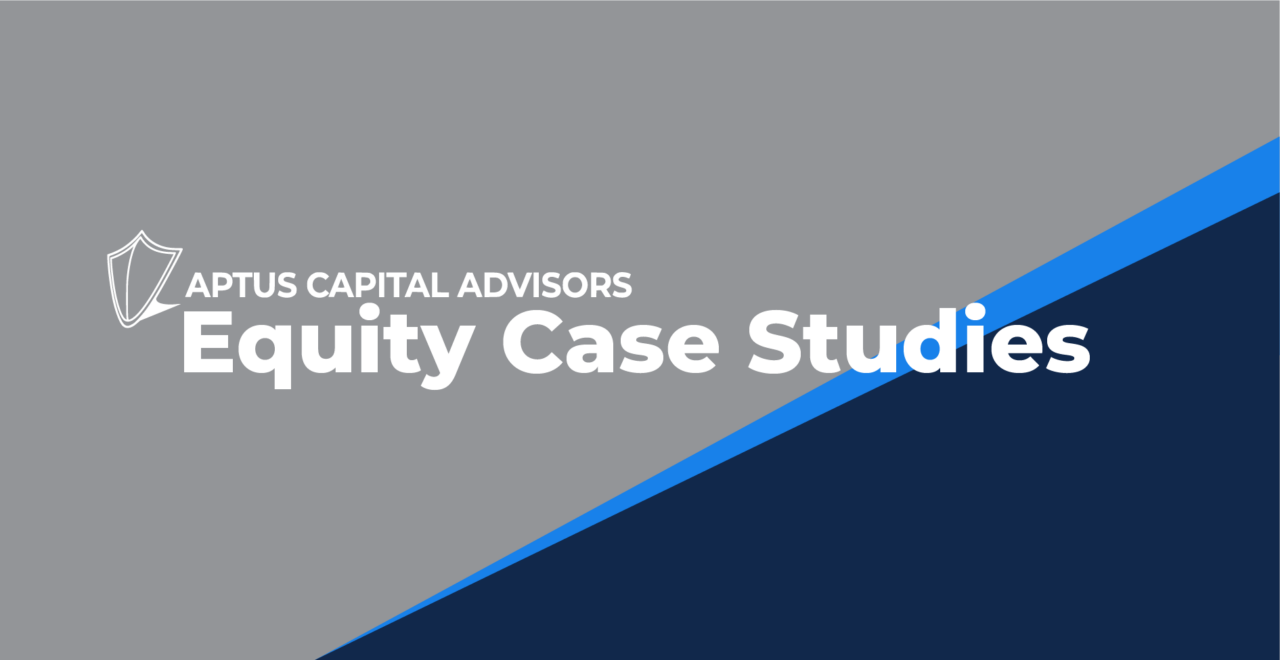With the Kentucky Derby scheduled for this weekend, I’ve been thinking about the multiple similarities between horse racing and stock picking. The market for common stocks is like the pari-mutuel betting system at the racetrack. Patrons go to the track to make bets on horses and the odds change based on those bets – much like the stock market. If someone believes that a particular horse is likely to do better than the odds suggest, one will bet on the horse. But if all bettors predict a horse to win, the odds will reflect that decision, and the return on investment will be poor. This analogy holds true for the stock market.
This month, I’ll be talking about Copart, Inc (CPRT).
See the updated CPRT Bull/Bear Case here.
Since I did a musing on CPRT 18 months ago, I’m going to throw some odd ball facts in about the company.
Copart, Inc. (CPRT)
What Do They Do?
Copart, Inc. is a leading provider of online auctions and vehicle remarketing services. Through their patented platform, their site auctions off used cars that are salvage titled, damaged, or rebuilt. I believe CPRT presents a great investment opportunity because:
- Unique business model provides great profitability with an economic moat
- CPRT shows strong revenue growth and a bright future outlook
- Their management team shows a track record of financial discipline
CPRT has a very unique business model with two approaches for listing vehicles. They may directly purchase cars damaged by accidents or natural disasters and then sell the vehicle through the platform. Alternatively, they provide auction services for insurance companies, financial institutions, or individuals to sell vehicles on their behalf. On the purchasing side, most buyers are licensed vehicle dismantlers, rebuilders, repair licensees, or used car dealers.
We believe this revenue growth will continue into the foreseeable future and possibly accelerate because of the 1) increasing technological complexity of new cars, 2) increasing labor costs, and 3) auto part shortages are causing insurance companies to designate cars as totaled with greater frequency.
Real Life Thoughts:
I’ve been in contact with the company’s Co-CEOs (Willis J. Johnson, the company’s founder has been out of the reigns for about 7 years now – awesome story if you have time to read up on him), as I’ve been trying to drive the company to start paying a dividend. The company is sitting on a record amount of cash, close to $1.7B, that can be deployed through shareholder yield that would increase the universe of potential investors – I’ll keep everyone apprised to see if our hard-fought commentary will ultimately push them to start implementing one.
Outside of that update, I love that CPRT’s management team invests with their shareholders – almost 10% of the shares outstanding are owned by the executive board (Given their age, I bet they’d love some yield from a CPRT dividend!). This means that each major decision made has a lot of ramifications to their own net wealth. But the craziest fact is that one of the Co-CEOs has an annual salary of $1. That means all of his compensation is based off of share price performance. Talk about an alignment of interests!
We’ve been really impressed with CPRT, which operated in a duopolistic market. The only other competitor is IAA, Inc. CPRT has continued to take market share from IAA. In fact, they won the contract with GEICO, which was previously 100% serviced by IAA. Why? Simply put, IAA had historical weak execution after few major events, i.e., hurricanes. Secondly, given CPRT’s international expansion, they have a far more reaching global network than IAA – hence, they had more potential buyers to bid up a car’s salvage value, i.e., a higher yield. CPRT has continued to expand internationally – something IAA is not doing.
CPRT in a Recession:
Surprisingly, auto salvage is actually a recession-resistant business model. Let’s look at it from both sides of the business:
- The first of these drivers, the number of cars Copart salvages each year, varies over time according to a simple formula: total miles driven x accidents per mile driven x vehicles per accident x salvage rate x Copart’s market share. In a recession, total miles driven decreases, but not by much. Even in the 2008-2009 recession, total miles driven only fell by 3%. Neither accidents per mile driven nor vehicles per accident is much affected by recessions. The salvage rate, all other things equal, actually increases in a recession because repair costs as a percentage of pre-accident values go up as used car prices go down. Copart’s market share also tends to increase during recessions as some weaker players go out of business or sell to Copart. The net result is that the number of cars salvaged tends to rise even in most recessions.
- The second of Copart’s revenue drivers, revenue per car, is more negatively impacted by recessionary environments. Revenue per car is tied to the auction value of the vehicle, the number of services consumed, the pricing of these services, and international exchange rates. Auction value generally decreases during recessions because consumers typically defer big-ticket purchases, pressuring new and used car prices. In the 2008-2009 recession, used car prices decreased by roughly 15%.
Amazingly, Copart was able to completely offset this price decline through some combination of increased services per car and increased price per service, leading to marginal growth in revenue.
Yield + Growth Framework:
0.00% + 10.75% = 10.75%
Revenue Growth + Margin Expansion + M&A + Share Repurchases = Proprietary Growth Rate
8.25% + 2.0% + 0.5% = 10.75%
Overall Thesis:
Given their technology, CPRT has a first mover advantage, especially compared to their mom-and-pop competitors. This advantage gives the company a significant advantage to be the preferred auctioneer, as it increases yield per vehicle. Copart has seen consistently high growth in both net income and margins, while steadily utilizing free cash flow to finance projects and acquisitions. They have placed a strong focus on growing through acquisitions, creating economies of scale, and providing their customers with the best technology in the industry. Copart has been making a strong effort to diversify away from the U.S. segment by utilizing their tried-and-true processes to push for growth both globally, as well by increasing their breadth of service. We feel confident in the management’s ability to carefully steward shareholders’ capital and accretively invest and continue to compound capital at attractive yields over the long run. Not to mention, insiders own 10% of the shares outstanding, so we are investing alongside the owners. In a nutshell, CPRT is an easy way to play the ever-growing problem of texting and driving!
Disclosures
Past performance is not indicative of future results. This material is not financial advice or an offer to sell any product. The information contained herein should not be considered a recommendation to purchase or sell any particular security. Forward looking statements cannot be guaranteed. It should not be assumed that any of the securities transactions, holdings or sectors discussed were or will prove to be profitable, or that the investment recommendations or decisions we make in the future will be profitable or will equal the investment performance of the securities discussed herein. A complete list of holdings is available upon request.
This commentary offers generalized research, not personalized investment advice. It is for informational purposes only and does not constitute a complete description of our investment services or performance. Nothing in this commentary should be interpreted to state or imply that past results are an indication of future investment returns. All investments involve risk and unless otherwise stated, are not guaranteed. Be sure to consult with an investment & tax professional before implementing any investment strategy. Investing involves risk. Principal loss is possible.
The content and/or when a page is marked “Advisor Use Only” or “For Institutional Use”, the content is only intended for financial advisors, consultants, or existing and prospective institutional investors of Aptus. These materials have not been written or approved for a retail audience or use in mind and should not be distributed to retail investors. Any distribution to retail investors by a registered investment adviser may violate the new Marketing Rule under the Investment Advisers Act. If you choose to utilize or cite material, we recommend the citation be presented in context, with similar footnotes in the material and appropriate sourcing to Aptus and/or any other author or source references. This is notwithstanding any considerations or customizations with regards to your operations, based on your own compliance process, and compliance review with the marketing rule effective November 4, 2022.
Advisory services are offered through Aptus Capital Advisors, LLC, a Registered Investment Adviser registered with the Securities and Exchange Commission. Registration does not imply a certain level or skill or training. More information about the advisor, its investment strategies and objectives, is included in the firm’s Form ADV Part 2, which can be obtained, at no charge, by calling (251) 517-7198. Aptus Capital Advisors, LLC is headquartered in Fairhope, Alabama. ACA-2305-10.



